The Cost of Cancer
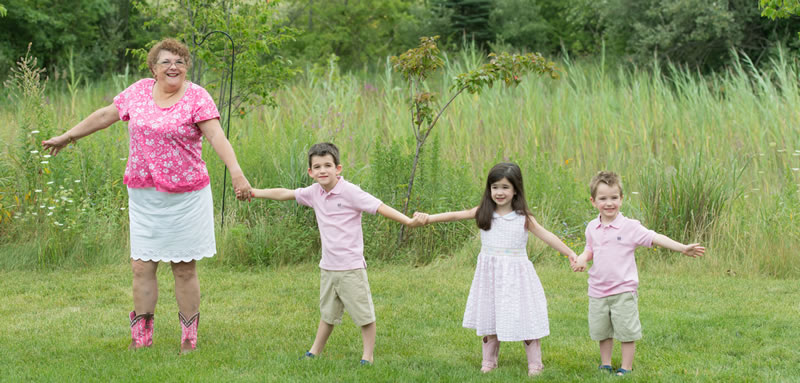
photo credit: Edda Pacifico
Patient Assistance Center helps a breast cancer patient find support during tough economic times
Michele Galgoul, 66, was trying to rebuild her life after the worst economic downturn in recent history. Then she received the news of a stage 3 breast cancer diagnosis. It couldn’t have come at a worse time. She and her husband, Steve, had given up their flooring business and their dream home, and had downsized to a rental house in a new town. Though they both had new jobs, they did not have health insurance.
"Honestly, my first thought was I was going to die," Galgoul says. "Having no insurance, I didn’t think I could be treated. I’m very strong when it comes to others, but when it comes to me, I fall apart."
Galgoul’s two adult sons and daughter-in-law encouraged her to call the University of Michigan Rogel Cancer Center. Though she doubted she could be treated with no insurance or savings to pay, she went to her first appointment with oncologist Jennifer Griggs, M.D., MPH.
Two things happened: Griggs assured her the cancer was treatable and put her in contact with Veronique Mosby, LBSW, a social worker at the Cancer Center’s Patient Assistance Center, who told Galgoul there were options to pay for her treatment.
"A patient going through cancer treatment is under a tremendous amount of stress. To have the added worry of paying for cancer care, including medications to manage the side effects of treatment, is yet one more burden on them and their families. As an oncologist, I can see this burden on their faces and the weight of this worry on their shoulders," Griggs says.
The Patient Assistance Center, located on level 1, room 1139 at the Rogel Cancer Center, provides many services in a single, convenient location to help patients dealing with barriers to health care. U-M social work resources, such as financial assistance for meals, prescription assistance, lodging, transportation and parking, are available.
"We offer assistance for just about any barrier to care that a patient might have, such as no transportation or health insurance," Mosby says.
In Galgoul’s case, Mosby went to work helping her apply for Medicaid to pay for medical costs. She later connected her with Shades of Pink and The Pink Fund, grants that help patients in financial need. When Galgoul lost her hair from chemotherapy treatment, Mosby let her know that every patient at the Cancer Center is eligible for a complimentary wig through the PAC’s wig bank.
"Veronique was my lifesaver. She calmed me down more than anyone else ever could. I would always stop by to see her when I went for infusions at the breast center," Galgoul says.
Patients can be connected to the PAC by their physician or anyone else on the health care team. Or anyone is welcome to walk in for an appointment. The center exists primarily for people with financial need or anyone whose financial situation has been challenged, often because of their health care situation.
"A burden is always lighter when it’s shared. Letting their cancer care team know that they are concerned about costs can help," Griggs says. "Our patient navigators, social work colleagues, financial assistance partners and community resources are available to help patients. Open communication with us is the first way to start sharing the burdens and worries."
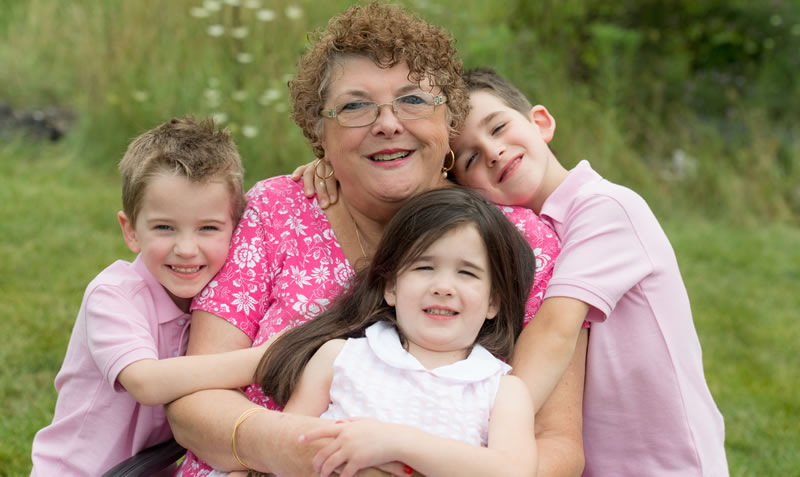
photo credit: Edda Pacifico
Galgoul did not have an easy time during treatment, experiencing nausea, dizziness and anemia that delayed treatments. She finally had surgery -- a lumpectomy and removal of 24 lymph nodes -- and radiation therapy. She is hopeful her cancer was removed surgically and the chemo and radiation killed any remaining cancer cells. Her next mammogram is in several months.
With cancer treatment behind her and the economy on the rise, Galgoul and her husband purchased a new home in Farmington and enjoy spending time with their grandchildren: Logan, 6, Liliana, 5, and Liam, 4.
Aside from the support of her care team at the Rogel Cancer Center, she says her grandkids were what kept her going during the difficult financial times and when she was not feeling well. Liliana decided she liked her “Nomie” with a bald head instead of the wig and was so concerned about her chemotherapy port that she told other patrons at a restaurant about it.
"We live for our grandkids. They’re so much fun. One day Liliana threw her arms up in the air and yelled, ‘They’re back!’ My eyelashes. I hadn’t even noticed," Galgoul says.
Some of the concerns the PAC can help with:
- Emergency financial assistance
- Transportation issues
- Prescription costs
- Meal resources
- Lodging while in Ann Arbor
- Wigs
- Wheelchair transportation
- Social work support
- Care coordination
- Connection to community resources
- Connection to Rogel Cancer Center resources, such as complementary therapies
Walk-in appointments welcome! Stop by room 1139 on level 1 of the Rogel Cancer Center. Or, call 734-232-2208. Visit the Patient Assistance Center webpage.
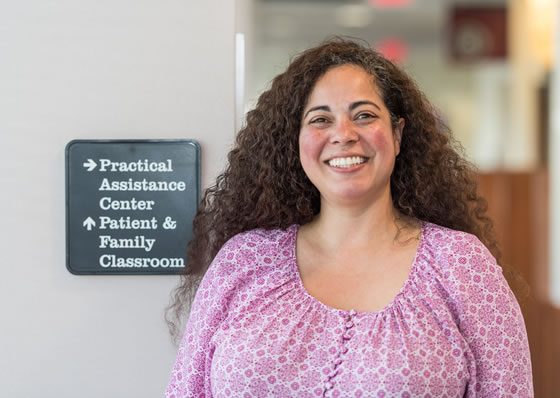
Veronique Mosby |
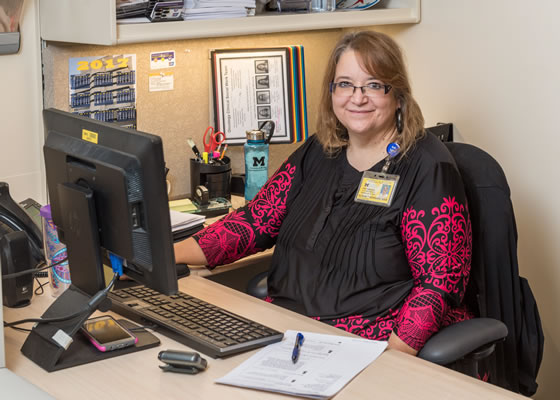
Sandra Bernard |
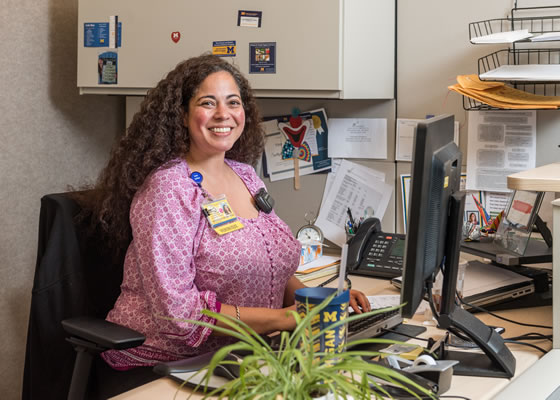
|

Wig Bank |
Read the Fall, 2017 issue of Thrive.
